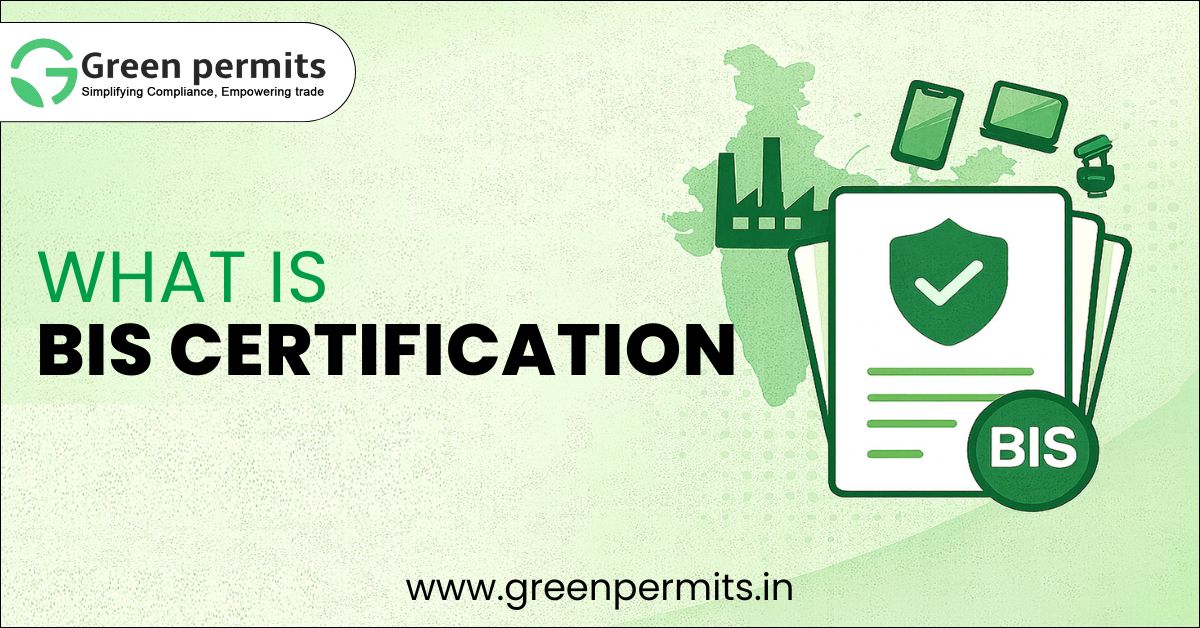Introduction
In today’s fast-evolving electronics market, trust and compliance are essential. Consumers expect quality. Governments enforce standards. And manufacturers who prioritize compliance—especially with BIS certification—gain a clear edge.
Whether you’re a local manufacturer or a global brand entering India, BIS certification is more than a regulatory formality—it’s a strategic move for sustainable growth, legal safety, and consumer trust in one of the world’s largest electronics markets.
What is BIS Certification in India?
The Bureau of Indian Standards (BIS) is the national standards body of India. It ensures products meet rigorous safety and quality benchmarks before entering Indian households.
Think of BIS as a regulatory gateway:
- Without it, electronics cannot legally be sold in India.
- With it, your brand earns a badge of credibility.
Key BIS Certification Marks:
- ISI Mark: Mandatory for domestic products like steel, cement, appliances, etc.
- CRS (Compulsory Registration Scheme): Mandatory for electronics and IT products to ensure proper testing and registration.
Who Needs BIS Certification?
If you’re involved in the electronics industry, you likely fall into one of these categories:
- Indian manufacturers producing regulated electronics
- Foreign manufacturers exporting electronics to India
- Importers or brand owners working with certified manufacturers
Common Products Requiring BIS Certification:
- Mobile phones
- LED lighting
- Power adapters
- Laptops & desktops
- Televisions
In short, BIS compliance is mandatory for scaling in India.
Types of BIS Certification Schemes
BIS offers multiple schemes based on product type:
- ISI Mark Scheme: For domestic products like steel, cement, etc.
- Compulsory Registration Scheme (CRS): Tailored for electronics and IT products
- Voluntary Certification Scheme: For non-mandatory products seeking quality endorsement
Knowing your product category is the first crucial step.
BIS Certification Process for Manufacturers
Follow these steps to get your product BIS certified:
- Identify the applicable Indian Standard (IS) for your product
- Test your product at a BIS-recognized laboratory
- Submit an application on the BIS portal with:
- Business license
- Product test reports
- Technical documentation
- Factory inspection (only for ISI, not required under CRS)
- Receive certification, subject to compliance
Note for foreign manufacturers: Appointing an Authorized Indian Representative (AIR) is mandatory.
BIS Certification Timeline
CRS Scheme: 4–6 weeks
ISI Scheme: 6–8 weeks (includes factory inspection)
Delays can occur due to errors in documentation, failed tests, or bureaucratic backlogs. Preparation is key.
How to Verify BIS Certification Online
Ensure transparency and avoid counterfeit goods by validating certification:
- Visit www.bis.gov.in
- Go to Product Certification > Search for Licensed Products
- Enter product name or registration number
- Download certificate
Benefits of BIS Certification
Going beyond legal compliance, BIS certification provides:
- Legal entry into the Indian market
- Enhanced consumer trust and brand value
- Protection against counterfeit goods
- Better internal quality standards
For startups and enterprises alike, BIS is a strategic asset.
Common Challenges & Solutions
1. Lab Test Failures
- Solution: Improve design and ensure material quality before submission
2. Incomplete Documentation
- Solution: Use a checklist or hire a certification consultant
3. Approval Delays
- Solution: Maintain regular follow-ups and good relations with BIS authorities
Conclusion
BIS certification isn’t just a requirement—it’s a competitive advantage.
As India’s electronics market expands, brands that embrace certification with clarity and commitment will lead the way. Make compliance your growth catalyst.
If you’re looking for expert help, Green Permits Consulting is here to simplify the process and ensure complete compliance.
FAQs – BIS Certification in India
A quality and safety certification by the Bureau of Indian Standards, mandatory for many electronics and IT products.
Appoint an Indian representative, apply under the CRS scheme, and submit proper testing and documentation.
BIS is the authority; ISI is a specific certification mark for domestic categories.
Yes. Any legal entity selling regulated electronics in India must be BIS certified.
Costs vary by product type and volume. Expenses include lab testing, application fees, and renewals.









Comments are closed